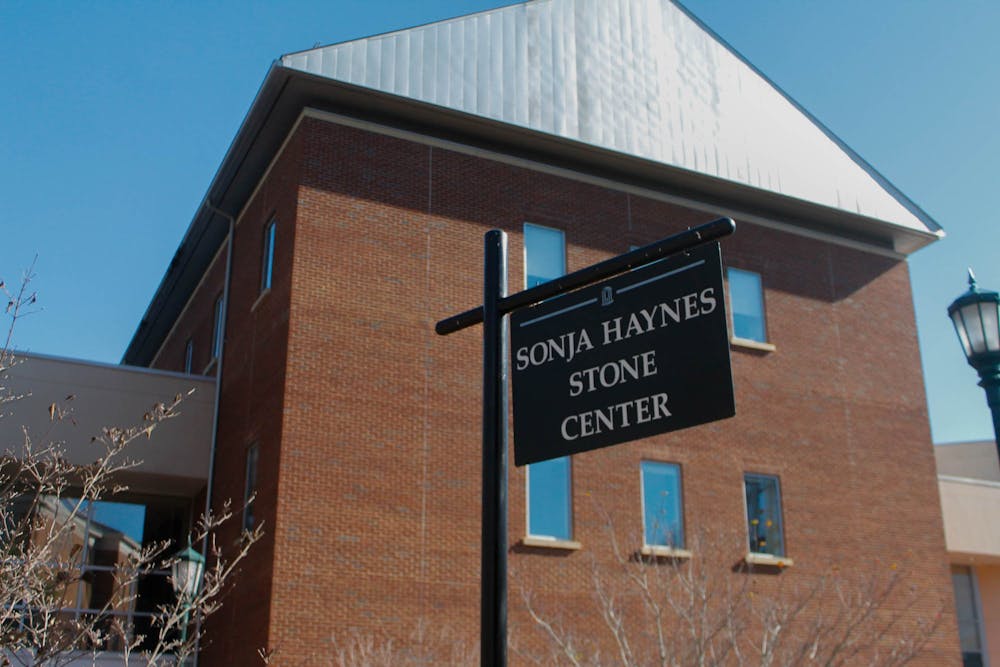The Israel-Palestinian peace negotiations may seem a long way from complete resolution, but Washington Institute senior fellows David Makovsky and Ghaith Al-Omari spoke on the topic at UNC Wednesday evening and had a hopeful message for their audience: disagreements can be overcome.
“This has become one of the most divisive issues on campuses and within communities. And we actually want to show that there's another way of doing it,” Al-Omari said. “As colleagues who work on policy issues in Washington, we tend to look at disagreements as obstacles to be overcome. And the way you do that is by engaging, by discussing, understanding different points of view, then coming up with solutions.”
North Carolina Hillel hosted the talk along with the Peace, War, and Defense Department, the Department of Religious Studies, the Center for Middle East and Islamic Studies and the Duke-UNC Consortium for Middle East Studies in response to the elections taking place in Israel.
Makovsky is a former senior advisor to the Special Envoy for Israeli-Palestinian Negotiations within the Office of the U.S. Secretary of State, and Al-Omari is the former executive director of the American Task Force on Palestine.
Makovsky said it is important for himself and Al-Omari to model civil dialogue for students. It's concerning to him that current college students are part of a generation that have no memories prior to 9/11, when there was a more prospective outlook on Israeli-Palestinian negotiations, Makovsky said.
“We are worried that the people who will jump off the peaceful coexistence train first are the people that don't have a reservoir of memories about when it was good," Makovsky said. “That makes us feel that we need to convey that to a new generation and urge them not to jump off the train and not to despair."
Al-Omari and Makovsky said they see things during their work that show signs of hope for the resolution of conflict in the region.
“Like Ghaith said, we see things under the table, so to speak, that are good. We see the Palestinian Israeli security people on both sides cooperating. We see economics, that there's some back and forth there.”
Junior Kayla Korzekwinski was encouraged by the speakers’ dedication to ending the conflict, and looked forward to learning more.



